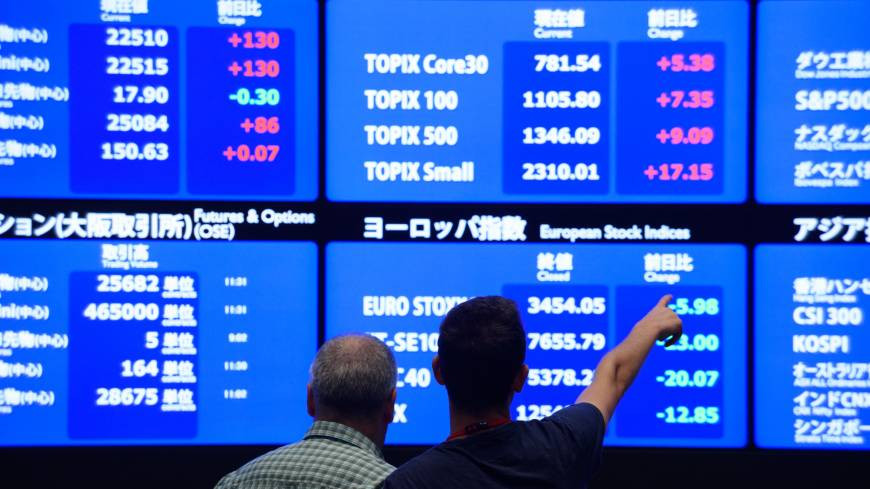
The main Asian indicators at the end of the week showed significant growth (up to 6%). China's Shanghai Composite and Shenzhen Composite rose less than others, by 1.6% and 1.72%, respectively. The Korean KOSPI gained almost twice as much, up 3.03%, while the Australian S&P/ASX 200 and Japan's Nikkei 225 added 2.79% and 2.98%, respectively. Hong Kong's Hang Seng Index gained more than the rest - 6% at once.
At the same time, the Japanese indicator showed the highest growth over the past two months. Overall, the Nikkei 225 gained nearly 4% over the week.
Such a significant increase in the Asia-Pacific indices is due to several factors. The first of them is a significant (up to 7.5%) increase in US stock indicators the day before. Such a positive mood of US investors was caused by fresh data on inflation in the US, which amounted to 7.7% last month compared to September's figure of 8.2%. This is the lowest level of this indicator since the beginning of the current year. The indicator also turned out to be lower than analysts' forecasts, who had expected inflation to rise at the level of 8%.
After the release of such data, bidders will evaluate what measures the US Federal Reserve will take in the future. According to analysts, while the policy of the central bank contributes to the achievement of its goals, some uncertainty still remains.
Japan recorded an increase in producer prices by 0.6% over the past month compared to the September level. Compared to the same period last year, this indicator increased by 9.1%, which exceeded the forecasts of experts who had expected an increase of 8.8%. According to revised data for September, prices increased by 1% on a monthly basis and by 10.2% on an annualized basis.
The biggest impact on the main Japanese index was made by the increase in the value of shares of Tokyo Electron (by 8.4% at once), even despite the decrease in the annual forecast for the company's earnings. Advantest shares jumped 9.06%.
In addition, M3 stocks gained 10.7%, Fujifilm up 10.1%, Shiseido up 9.5% and Daikin Industries up 7.19%.
Thanks to a more than 3x increase in net income and revenue of almost 10% by Mazda Motor, the value of its securities increased by 7.8%.
Sony Group (by 4.9%), SoftBank Group (by 1.5%), Fast Retailing (by 2.1%), and Toyota Motor (by 2%) also rose in price.
At the same time, Nikon shares shed 8.85% and posted the worst performance among the Nikkei 225 stocks due to lower net profit for the first six months of the current fiscal year.
On the Hong Kong stock exchange, there is a significant increase in the value of securities of development companies: shares of Longfor Group Holdings, Ltd. rose by 26.5%, while Country Garden Holdings, Co. - by 25.9%. Ahead of the registration of the issue of Longfor bonds totaling 20 billion yuan (equivalent to 2.8 billion US dollars) was approved by the National Association of Financial Market Institutional Investors of China.
Despite posting a 4.5x net loss, NIO's share price is up 13.2% as it provided strong sales guidance for this year.
Tencent Holdings also saw gains in value, up 7.7%, Alibaba Group up 7.2%, JD.com up 11%, BYD and Xiaomi up 5.7% and 3.3% each. % respectively.
The increase in the South Korean indicator was facilitated by the growth of quotes of the largest companies: papers of Samsung Electronics added 3.8% in price, and Hyundai Motor - 1.2%.
The Australian indicator has reached its highest levels for the last five months. The largest companies in the country were highlighted for the increase in the value of securities: shares of BHP rose by 3.8%, and Rio Tinto - by 4.4%.
In addition, the share price of the largest Australian banks rose: Westpac Banking added 2%, Commonwealth Bank - 1.7%, ANZ Bank - 1.5%, and National Australia Bank - 1.1%.
Trading analysis offered by Flex EA.
Source



Please do not spam; comments and reviews are verified prior to publishing.